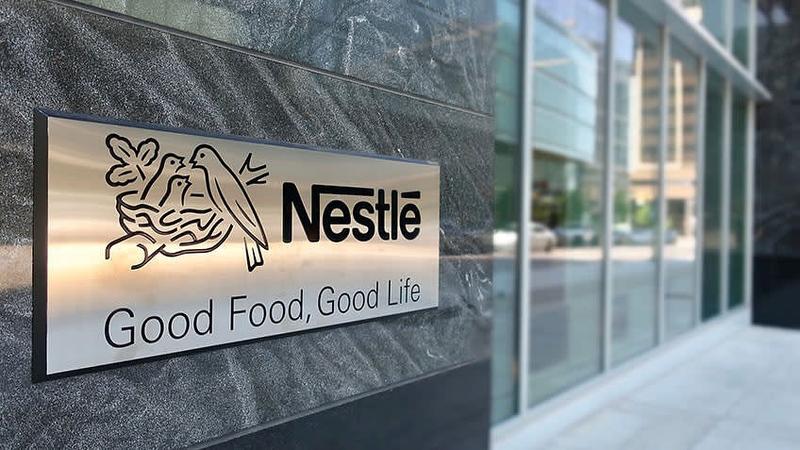Published 17:27 IST, April 19th 2024
Nestle’s Sugary Controversy, but what FMCG Behemoth did wrong? All you need to know
According to Public Eye, the food giant controls 20 per cent of the baby food market, valued at nearly $70 billion.

Nestle Sugary Affair: Nestlé, the big food giant, is under the spotlight again, but this time it's about something pretty important – sugar in baby foods. A recent investigation by Public Eye and IBFAN found that Nestlé's infant cereals and powdered milk products for young kids in lower-income countries contain added sugar.
According to Public Eye, the food giant controls 20 per cent of the baby food market, valued at nearly $70 billion. With more than $2.5 billion in world sales in 2022, Cerelac and Nido are some of Nestlé’s best-selling baby-food brands in low- and middle-income countries.
And we're not talking a little bit – we're talking nearly 4 grams per serving on average for Cerelac cereals and almost two grams for Nido powdered milk. That's a lot, especially for little ones!
On the flip side, in places like Switzerland and Europe, Nestlé sells similar products without any added sugar. So why the double standard?
Well, that's the question many paediatricians and child nutrition experts are asking. They're worried about the long-term health effects of all that sugar, like the risk of obesity and other chronic illnesses down the road.
The World Health Organization (WHO) has been sounding the alarm on this for a while now. They say exposing babies and young kids to sugar early on can set them up for a lifelong preference for sweet stuff, which isn't great for their health.
But here's the twist – even though Nestlé publicly recommends avoiding added sugar in baby foods, they're still selling these sugary products in countries where regulations are more relaxed. And to make matters worse, they're using sneaky marketing tactics, like getting doctors and social media influencers on board, to convince parents that their products are the best choice.
Now, people are saying enough is enough. A petition has been launched calling on Nestlé to stop adding sugar to products for babies and young children under three years old, no matter where they're sold. It's all about putting the health of our littlest eaters first.
But this is not the first time, that Nestle has been in the spotlight for the wrong reasons
Maggie Saga
Back in 2015, Nestle’s Maggi was hit by a major setback. The Food Safety and Standards Authority of India (FSSAI) slammed a ban on Maggi due to concerns about lead content and mislabeling. This left Nestle India reeling, with Maggi's sales plummeting and the company facing losses of over Rs 500 crore. The company’s market share nosedived from 80 per cent to zero in a matter of months.
Nestle India's Maggi noodles, their cash cow, went through a tough time back in 2015. The popular snack faced a nationwide ban for a whopping six months over allegations of containing monosodium glutamate (MSG) and lead beyond permitted levels. This led to a massive recall of 38,000 tonnes of Maggi noodles from millions of retail shelves between June 5 and September 1, 2015.
During those challenging months, Nestle had to jump through hoops. They not only had to destroy tons of Maggi noodles but also engaged in a battle with regulators and government authorities to prove that Maggi was indeed safe for consumption. It was a hectic time for the company as they worked tirelessly to restore faith in their beloved brand.
But then, enter Suresh Narayanan, who took charge as Chairman and Managing Director of Nestle India in the same year. With his leadership, things took a turn. Despite the ban, Narayanan didn't lose hope. Instead, he rolled up his sleeves and got to work.
He kicked off a heartfelt campaign to win back the trust of Maggi lovers. You might remember those ads like 'We miss you Maggi' and 'Midnight Cooking was back.' They weren't just ads; they were messages straight from the heart, assuring consumers that Maggi was safe and ready to come back to their kitchens.
And guess what? It worked like a charm! Maggi quickly regained its foothold in the market, recapturing a whopping 60 per cent of its share within just a year of its relaunch. Narayanan's leadership wasn't just about crisis management; it was about innovation too.
Under his guidance, Nestle India introduced exciting new flavours and products, making Maggi even more irresistible. Plus, they leveraged data to fine-tune their strategies, ensuring they reached the right people at the right time.
But wait, there's more! Narayanan didn't stop there. He also focused on improving Nestle India's supply chain and creating a workplace culture where employees felt valued and supported. It wasn't just about profits for him; it was about people too.
However, just when things seemed to be back on track, Nestle faced a new challenge – concerns over the sugar content in its baby products. This sparked a whole new debate about the importance of making informed choices, especially when it comes to our little ones' health.
Updated 17:27 IST, April 19th 2024




